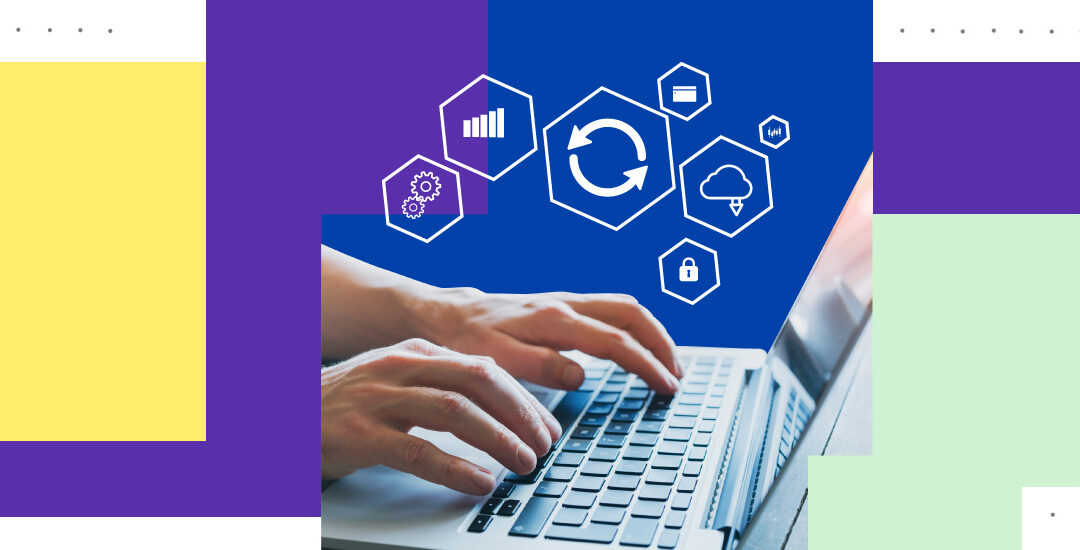
What Accountants Need to Know About Generative AI
Explore the benefits of Gen AI in accounting and how to use it effectively.
Over the past year, companies in almost every sector have begun integrating forms of generative artificial intelligence (Gen AI) into their workplaces. And with 83 percent of companies listing AI as a top business priority, this is only set to continue.
Gen AI, a type of AI that uses the power of algorithms to create data or content similar to human-generated content, is fundamentally reshaping the way we work. It is a powerful way for us to make sense of the vast amounts of data in today’s digital landscape.
One field that has been quick to embrace the transformative potential of Gen AI is accounting. As the profession evolves to meet increasing client demands while maximizing cost efficiencies, accountants are increasingly turning to Gen AI to:
- streamline many of their operational processes
- enhance data analysis
- provide more personalized services for their clients
If you work in the accounting profession, embracing Gen AI can be a game-changer that allows you to offer higher-quality services and remain competitive. In this article, we will explore the benefits of AI in the field along with other important considerations.
What are the big Gen AI tools?
While there are numerous Gen AI tools available, there are a few main powerhouses that are dominating the market:
ChatGPT
OpenAI’s ChatGPT (and its variants) has quickly become the most well-known generative AI tool on the market. The natural language processing tool can process large quantities of data, generate texts and content, and answer questions in an incredibly human-sounding way. It uses prediction technology to generate answers to user prompts, predicting the next word, sentence or paragraph to formulate an answer.
Businesses are embracing the power of ChatGPT to help with many tasks, from data entry and extraction to generating content and reports. In the accounting sector, ChatGPT can be used to automate many accounting and auditing processes, freeing up accountants to perform more high-level work.
Bard
Bard is a conversational Gen AI chatbot tool from Google that was released in 2023. Google has its own large language model (LLM), PaLM 2, that powers Bard.
Bard follows a similar format to ChatGPT, where users can prompt it with questions or commands to generate content. As well as answering questions in text form, Bard also includes images in its answers. Businesses can use Bard to help them with tasks like:
- creating business plans
- generating reports
- writing code
- translating content to other languages
Other common Gen AI tools
There are several other key players that have released similar Gen AI tools in this space. The top tools include:
- Claude: Claude self-declares itself as a next-generation AI assistant. What makes it stand out is that it’s trained on real-time data, meaning it can answer questions on current events.
- Chatsonic: This conversational AI tool works similarly to ChatGPT. It can generate sophisticated content, although it claims to deliver in areas where ChatGPT is limited.
- Microsoft Bing AI Chatbot: Another prompt-based tool, Microsoft Bing collects data once it receives a question. You can choose one of three styles for your answers: more creative, more balanced or more precise.
How can Gen AI be used in accounting?
The accounting sector is no exception when it comes to leveraging productivity-hacking AI tools. Here are the initial common applications of Gen AI in accounting:
Data entry
Data entry is crucial in accounting. However, it is a time-consuming and error-prone task. Automating data entry and extraction is one of the most straightforward ways accounting firms can embrace Gen AI. Gen AI tools can typically process large volumes of financial documents, data, invoices and receipts in minutes.
Utilizing Gen AI tools for data entry also reduces the risk of human error. Gen AI tools are highly accurate and efficient at extracting data due to their model of recognizing patterns and structures. Overall, automating data processing can save accounting firms time and resources, allowing them to focus on more complex, value-added tasks.
Reconciliation
Generative AI in accounting is a valuable tool that can help automate the reconciliation process. Reconciliation requires high accuracy in order to match and compare financial documents to ensure they are precise. AI can help spot discrepancies and errors. It can automate the process of matching financial data across various accounts, such as bank statements, accounts payable and accounts receivable, to identify matches and discrepancies.
As tools can perform reconciliation tasks in real time, accountants can monitor financial data continuously. This means accountants can take preventive action to avoid errors and help businesses make better decisions.
Analyzing financial statements for patterns
Financial analysis can be made simpler, quicker and more accurate with generative AI in accounting. Gen AI tools can automate the process of data preparation, cleaning and normalization, structuring it consistently for analysis.
Accountants can use this AI to identify:
- trends
- seasonal variations
- financial ratios
- cost-saving opportunities
Fraud detection
Identifying irregularities and suspicious activities is key to detecting fraud. Gen AI tools can be trained to recognize patterns in financial data. When points in the data deviate significantly from expected patterns, AI tools can flag these anomalies as potential indicators of fraud.
This real-time analysis allows accountants and auditors to act quickly when something looks off. Gen AI can also aggregate data from various sources, like financial transactions and logs, creating a more comprehensive view of a financial ecosystem. Having a broad overview from many sources helps to identify patterns that might not be apparent when analyzing data sources in silos.
Financial forecasting
The predictive models of AI tools can help to forecast future financial performance more accurately. It can analyze various types of financial data, such as:
- historical data
- market trends
- economic indicators
Accurate predictions can improve budgeting and financial planning. They allow accountants to uncover exactly what influences revenue, expenses or other financial metrics.
Automating financial reports and documents
Automating financial reports can save accountants hours usually spent painstakingly pulling together data. Gen AI reduces the risks of human errors, ensuring more accurate reporting. It can customize report formats for different needs and clients, and it can even help to distribute the report to relevant stakeholders. Gen AI tools can also create visual representations of financial data, such as charts and graphs, making it easier to identify and communicate patterns and trends.
As well as reports, Gen AI can generate:
- accounting journal entries
- checklists and templates for processes
- emails to clients
- invoices
What are the key concerns of using AI in accounting?
Before you go all in with Gen AI in your accounting firm, there are several points you should consider:
Data security
Financial data is often highly sensitive and at high risk of breaches and cyberattacks. Therefore, it is vital to put measures in place to keep data secure. This is particularly important when sharing accounting data online and using third-party Gen AI tools.
Here are some key ways you can keep data safe:
- Access control: Only authorized staff should have access to sensitive data and Gen AI systems. Role-based access controls can help restrict access to specific functions and data.
- Encryption: Encryption can secure data when transferring it between systems and when storing it on servers or in the cloud.
- Secure data storage: Using reputable, certified Gen AI tools and cloud providers with robust security systems will help to protect data.
- Multi-factor authentication: Adding additional security requirements to access sensitive data will boost data security.
Unreliable information
Gen AI relies heavily on the quality and accuracy of the data it processes. If the input data contains errors, it can lead to incorrect financial analysis and reporting. Accountants should also be aware of the limitations of how Gen AI gathers data. Tools can pull data from various sources, some of which may be inaccurate.
Gen AI often makes assumptions based on historical data patterns. If the information behind these assumptions is unreliable, the AI’s output can be misleading and lead to poor decision-making.
Inaccurate financial information stemming from unreliable data can result in regulatory non-compliance. Businesses making decisions based on incorrect financial information could suffer disastrous consequences, from financial losses to reputation damage. It’s therefore important to find ways to utilize Gen AI in responsible ways.
Changing responsibilities and roles for staff
As Gen AI starts to take over monotonous and repetitive tasks like data entry, the roles of accounting professionals will naturally evolve. Accountants will be able to transition from data entry to more critical and strategic roles.
New responsibilities may include:
- verifying the accuracy of data
- ensuring compliance
- addressing exceptions
They may also focus more on interpreting financial data and having a more active role in supporting decision-making.
What can we expect from Gen AI in accounting in the years ahead?
As Gen AI technology becomes more sophisticated, it will likely play a successively bigger role in the accounting profession. Gen AI tools will continue to be used to automate many routine tasks in accounting, such as data entry, transaction categorization and basic reconciliation. As firms get used to more efficiency and less risk of errors, they will be able to play a more strategic and advisory role to their clients.
Accountants will be able to assess risks more accurately, allowing businesses to take proactive and preventive actions to avoid undesirable outcomes. Firms will also be able to reduce labor costs and work more efficiently.
While choosing the right automation tools will certainly reduce errors in accounting in the future, accountants should make sure they don’t become overly reliant on Gen AI. Overreliance can lead to a lack of critical thinking and manual verification of results, which will ultimately lead to an erosion of service quality and resulting lost business.
However, those firms that recognize Gen AI’s benefits and its limitations, and understand how their individual operations can leverage it effectively, stand to gain significant advantages by incorporating this game-changing technology into their practices.








